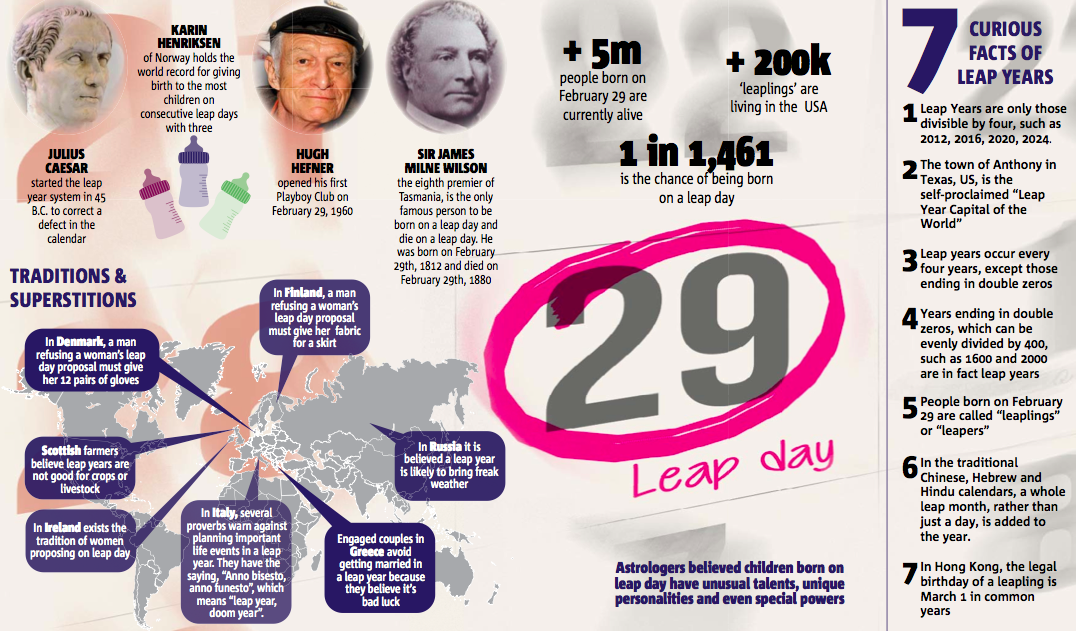We’re all familiar with leap years but most are less clear about its rather intriguing history. Indeed, the extra day, which falls on Monday this month, affects the economy,and of courseemployees, who are forced to work an extra day.But perhaps most bizarrely, thoseborn on the 29th are said to suffer a psychological trauma. Although it was introduced by Julius Caesar more than 2,000 years ago,the extra day is still associated with age-old customs, folklore and superstitions. In Scotland, it used to be considered unlucky for someone to be born on a leap day. The Greeks consider it unlucky for couples to marry during a leap year, especially on leap day. But what is a leap year and what is it for? One orbit of Earth around the Sun takes 365.2422 days,slightly longer than the Gregorian calendar’s 365. By adding an extra day to the calendar every four years, we bring the calendarin line. RELATED:Celebrate this Leap Year with a free puppy party in New York City “The only reason to have a leap year is to keep our ‘day’ aligned with one rotation,with respect to the sun,” Michael E. Wysession said,a professor of earth and planetary sciences at Washington University in St. Louis. “So our year corresponds to an exact 360 degree revolution around the sun.In terms of how we have defined the length of a second, and therefore the length of a day, which isdefined as 86,400 seconds, the two do not match up. It is longer, so each day, on average, the position of the sun in the sky at exactly noon at any place on Earth would drift.” For scientists and researchers, leap day does not haveany magical connotations, but it is very useful to prevent the destabilization of major events. According to experts, if we didn’t modify the calendar every four years, after a few centuries the inhabitants of the northern hemisphere would have to celebrate Christmas and the New Year during the summer. “If we didn’t insert the extra day, we would have some unusual things going on: during certain centuries we would have winter and snow in the northern hemisphere in December and January. While during other centuries, we would have winter in Julyand August, and summer in December. Although we could probably adapt to this now, it would cause all sorts of unusual things with holidays that are tied to the seasons,” David Kieda explained, a professor of physics and astronomy at the University of Utah. Economically, the leap day does not have any significant negative effects. “The leap day doesn’t really have a great deal of impact on the economy as a whole and may even benefit some people,”Matthew D. Armstrong said, financial advisor at Savant Capital Management. “Consumersthat benefit from the extra day include anyone that rents and anyone with a parking or public transportation pass who get a ‘free’ day of usage.” Away from all the theories and superstitions associated with it, the truth is that the leap day represents 24 extra hours, which, work permitting, you can do whatever you want with.
Leap year: the stories behind the extra day

Metro World News
















